
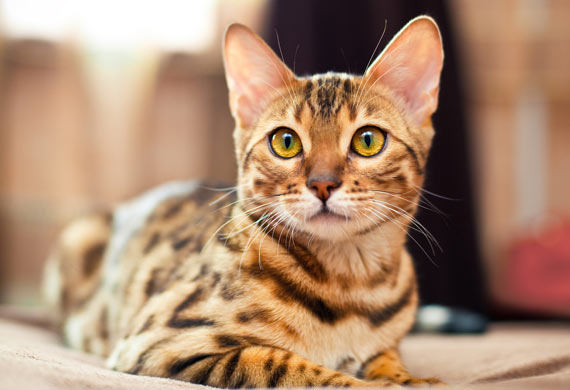
By Ashley Gallagher, DVM
Vitamins and supplements found at health stores and pharmacies are all the rage these days — from multivitamins to specialty supplements that are designed to support specific bodily functions. So does that mean you should also add a supplement to your pet’s daily ration of food to keep him or her healthy? Not only is this not necessarily true for most cats, in some cases it can be harmful.
Commercial pet foods are formulated to meet all the nutrient requirements a cat needs to thrive. Unlike our diets, which vary day-to-day, most cats eat the same food day in and day out. Pet food manufacturers create their diets with this assumption, making any sort of daily multi-vitamin unnecessary. That is not to say that all pet foods are created equal, because there is great variety among each brand of food, which is extremely important to know when choosing a diet for your cat.
The best pet food companies will formulate their diets using feeding trials. This means that they create a food based on a formulation, then actually feed it to cats and monitor their response to the diet via a variety of diagnostic testing. This gives a complete picture as to how each ingredient in the diet comes together in the final product. There are very few companies that actually do this and it is a critical process in developing a complete and balanced diet. The pet food companies that do not perform feeding trials simply develop their diet based on a formula, and package it and sell it without ever feeding it to an actual cat.
Additionally, the better pet food manufacturers will create a diet based on the life stage and lifestyle of the cats they are marketing to. One can imagine that a growing kitten has very different nutritional needs than an adult cat. Many pet food companies only produce foods designed to meet the nutritional requirements for “all life stages,” which means that food is formulated to meet the dietary needs of a puppy and is therefore inappropriate for adult and senior cats.
Once you have chosen a diet that was developed using feeding trials and that is ideal for your cat’s life stage and lifestyle, there are some supplements that you can consider adding based on the particular health needs of your cat. You should always first discuss with your veterinarian any supplements that you are considering giving to your cat. This will ensure there are no complications or health concerns with other medications you are giving or medical conditions your cat has. If you choose a multi-vitamin or specific single nutrient, please be aware that adding these to a complete and balanced cat food could combine with the nutrients already in the food and create toxicity.
Glucosamine and chondroitin are commonly given together to help protect the joints to prevent or slow progression of arthritis. These work to increase lubrication within the joint as well as repair cartilage. They will not eliminate arthritis or correct any structural abnormalities but they can help support the joint function. There are countless joint supplements out there to choose from so be sure to discuss with your veterinarian which one is best for your cat.
Another widely used dietary supplement that has many functions and is a great additive to many foods is omega-3 fatty acids such as those found in fish oil. Omega-3 fatty acids are a powerful anti-inflammatory for the skin and joints and can help support the function of multiple organs. You should speak to your veterinarian to see if your cat needs additional Omega-3 fatty acids and how much to give.
If you have a senior cat that seems to be not quite as sharp mentally you could consider a supplement to support cognitive dysfunction, also know as dementia. There have been many studies that show antioxidants such as vitamins E and C will protect and repair brain cells. There are also supplements containing compounds targeted at maintaining brain function in cats. A therapeutic veterinary food specifically formulated with high levels of antioxidants to protect a cat’s aging brain would also be a good choice if you notice your senior cat slowing down. During your annual senior exam discuss any concerns you have with your veterinarian and whether there are supplements that may help your senior cat stay mentally sharp.
A high quality, complete and balanced food formulated for your cat’s specific life stage and lifestyle will meet all the essential nutrients to maintain optimal health. There are some additional supplements that address certain medical issues and could improve the health of your cat. It is always best to first discuss any medical concerns you have with your veterinarian and get his or her recommendation for supplements your cat may benefit from.
Image: Shvaygert Ekaterina / Shutterstock
Cat Scratching? Here's How Pet Food Can Help
How Long Do Cats Live? And How to Make Your Cat Live Longer
5 Ways to Help Your Cat Stay Disease Free
5 Dos and Don'ts for Mixing Your Pet's Food
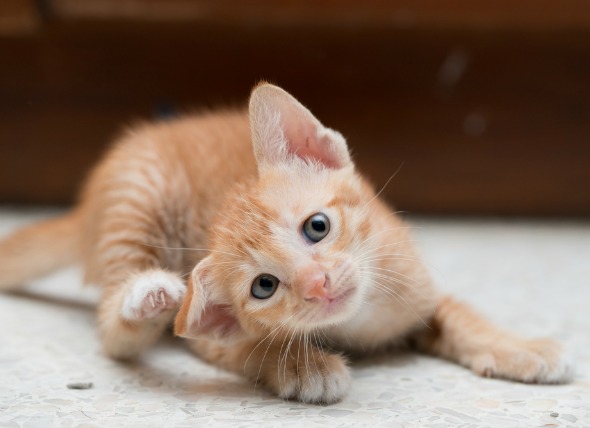 How Did My Cat Get Fleas and/or Ticks?
By Jennifer Kvamme, DVM
If you are a
How Did My Cat Get Fleas and/or Ticks?
By Jennifer Kvamme, DVM
If you are a
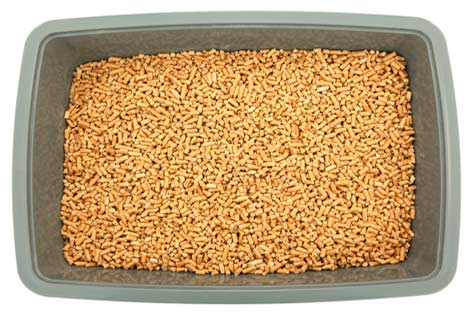 Eco-Friendly Cat Litter
What smells if you don’t
Eco-Friendly Cat Litter
What smells if you don’t
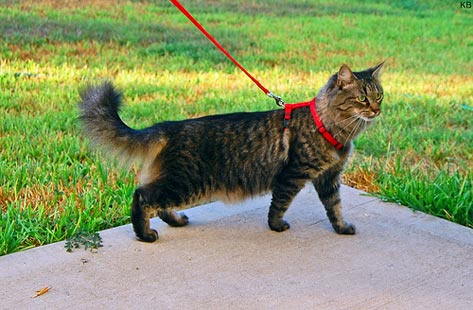 How to Walk Your Cat (and Live to Tell About It)
Ever seen a cat out walking on a leash? Mo
How to Walk Your Cat (and Live to Tell About It)
Ever seen a cat out walking on a leash? Mo
 Making Ends Meet While Eating Healthy - You and Your Cat!
When considering the cost of feeding your cat alon
Making Ends Meet While Eating Healthy - You and Your Cat!
When considering the cost of feeding your cat alon
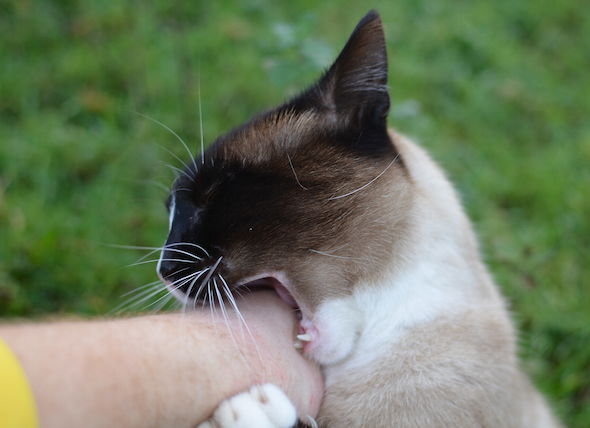 How to Stop a Cat From Biting
By Shara Rutberg
When you t
How to Stop a Cat From Biting
By Shara Rutberg
When you t
Copyright © 2005-2016 Pet Information All Rights Reserved
Contact us: www162date@outlook.com